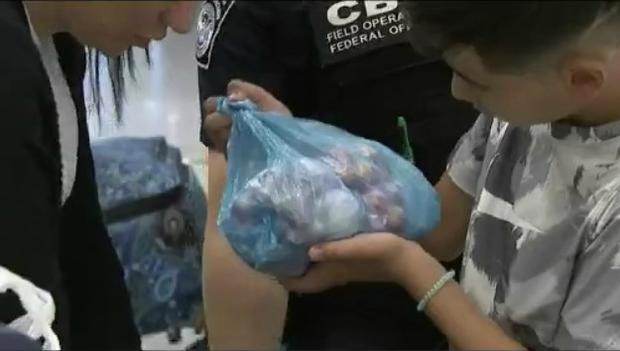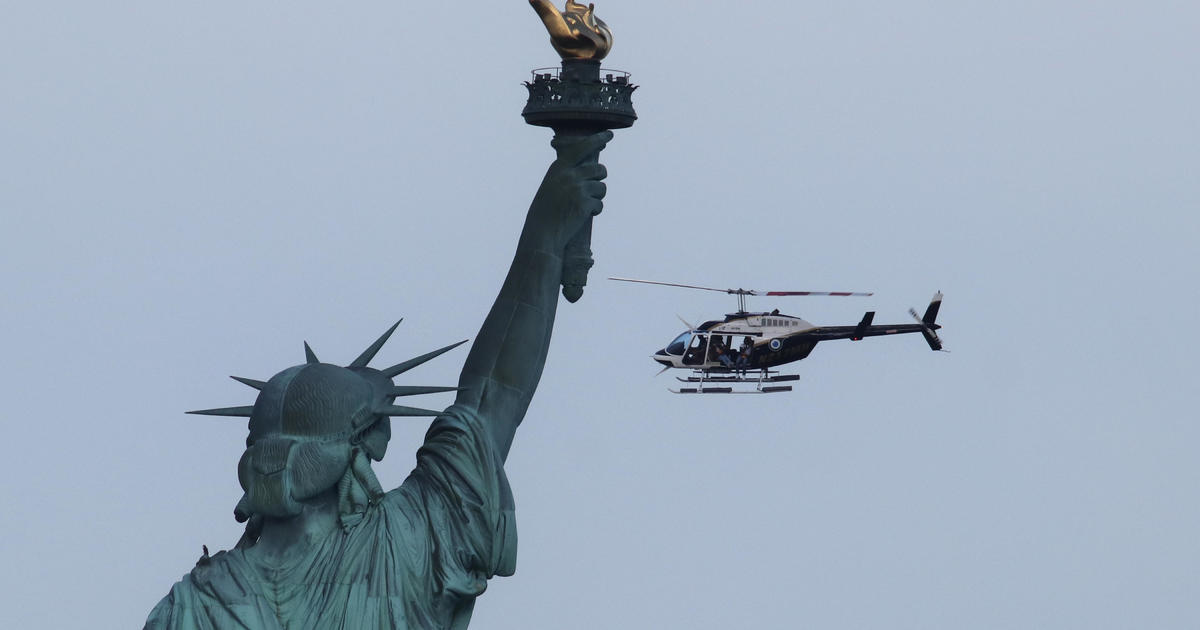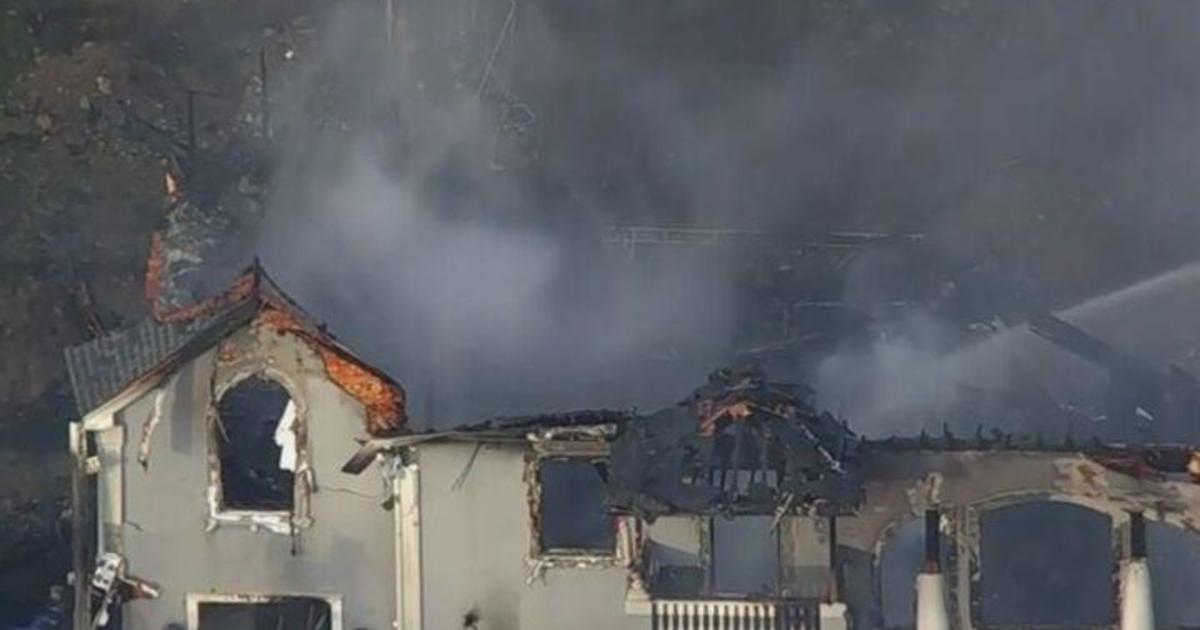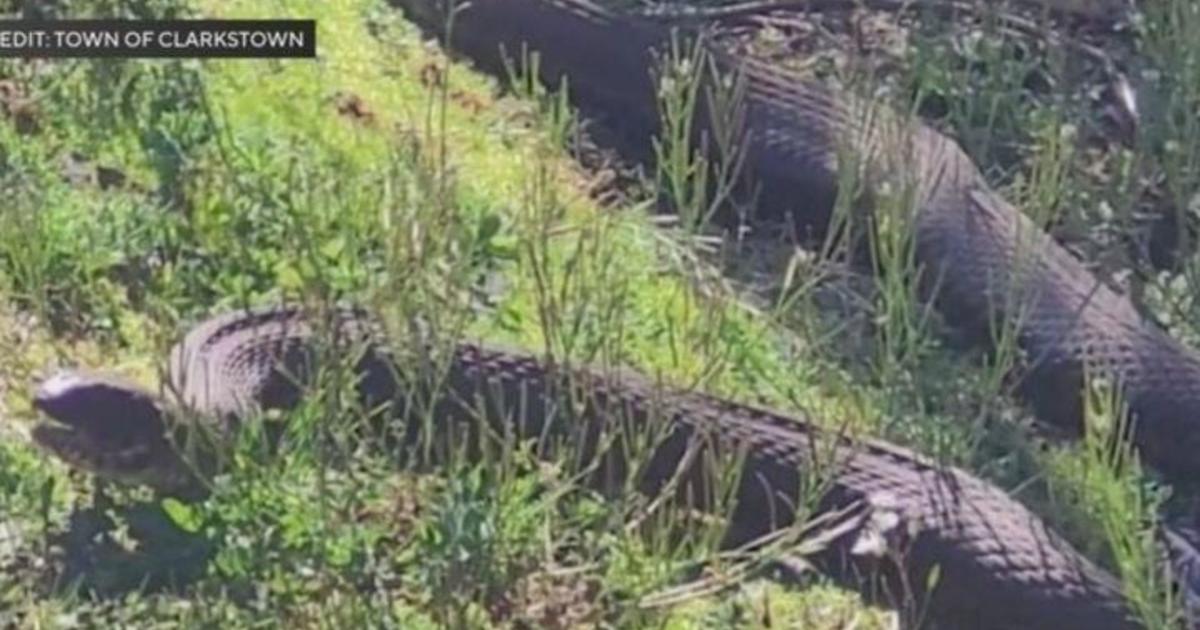Customs And Border Protection Specialists At JFK Stay Very Busy Enforcing Agriculture Restrictions
NEW YORK (CBSNewYork) -- U.S. Customs and Border Protection works to keep us safe from all kinds of threats, some of which can come in the shape of fruits and vegetables.
CBSN New York's Alice Gainer recently got a firsthand look at Terminal 4 at John F. Kennedy Airport, where agents seize all kinds of food that can pose a danger to our country.
Tucked away at JFK in a room that looks like some sort of international food market are fruits, vegetables, meats, rice, plants and other items seized within the past 24 hours from travelers.
They come from all over -- Bangladesh, Uzbekistan, Nigeria, you name it.
So where does it all go?
Some of it goes into a grinder and is flushed into the sewer system, treated as wastewater. The rest is taken to a facility off site and incinerated.
But why?
"Our main concern is the pest risk to our agricultural system here in the U.S.," Customs and Border Protection agriculture specialist Caitlyn McDougall said. "That bug that is from another country is loose in our environment."
This can mean disease and destruction to our own food supply.
"When it comes to palms, when they're still fresh there's mites," specialist Ginger Perrone added.
While some travelers declare these items, Customs and Border Protection specialists get a little help from the beagle brigade in sniffing out the undeclared.
Gainer met "Denny," who will go through at least 500 pieces of luggage for one flight.
Agriculture restrictions differ depending on what country items are brought in from.
"It really depends on which insects are native to that country and whether or not we already have them here in the U.S.," McDougall said.
That other question they ask on the customs form -- "Have you been near a farm?" -- is done so because they want to check the bottoms of your packed shoes.
"A lot of animal diseases are carried in the soil due to contamination from animal waste," McDougall said.
MORE: Customs Agents Find 70 Finches Hidden Inside Hair Rollers At JFK Airport
Gainer watched as luggage went through the x-ray machine and was then searched. Plants, melons and meat were all confiscated.
So what are some standout items taken over the years?
"One time we had a woman bring in 16 live baby goats in dog kennels from Russia," McDougall said. "Roasted monkeys. We get monkey meat, which is prohibited due to Ebola concerns."
"Opening up a bag and seeing, I guess, an iguana face looking back at you," CBP Deputy Chief James Bowles said.
MORE: Customs: Man Caught Smuggling Cocaine Inside Bottles Of Baileys At JFK Airport
In addition to patrolling agriculture, there are the bigger K-9s looking for drugs, too. Terminal 4 at JFK is a 24/7 operation.
What have they seized this week alone?
"If I would say everything, would you believe me? It could be merchandise, could be counterfeit money. It could be real money they failed to declare," Bowles said.
So if someone is thinking about hiding something in their luggage, chances are an agent on two legs or four may find it one way or another.
If you don't declare and are caught with a restricted food item, you could face a fine up to $300. In years past foreign insects have destroyed Florida orange groves.




